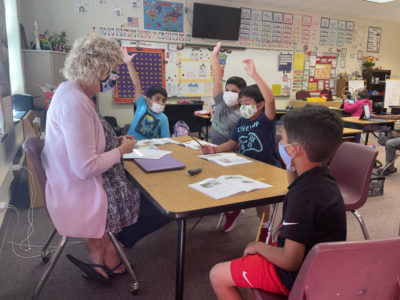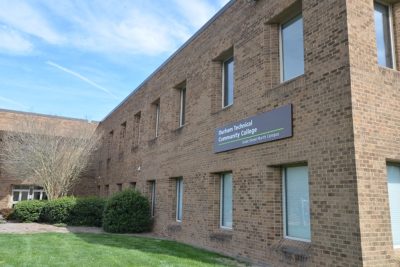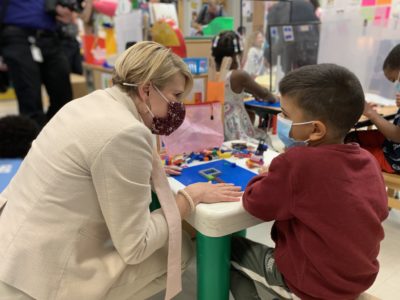
This fall, elementary school teachers and school leaders in one third of North Carolina school districts will begin LETRS training, with an ambitious goal of training all elementary school educators in the science of reading. This training is a meaningful investment of time and resources for our state, and it couldn’t come at a more critical time. Jarring statistics released in early September underscore the need for emphasis on reading instruction: only 33.7% of North Carolina’s third graders scored at College and Career Ready Levels on the 2020-2021 Reading End of Grade (EOG) assessment.
A timely report entitled North Carolina Science of Teaching Reading Project from the Florida Center for Reading Research (FCRR) published earlier this week provides insights on how we can best support teachers. FCRR surveyed a representative sample of N.C. K-3 teachers on the science of reading. The survey findings: Even when teachers know the reading research, they do not necessarily know how to apply it to instructional practice.
These findings indicate that North Carolina is on the right path with providing robust professional development for literacy instruction. Furthermore, the findings suggest that instructional coaching — helping teachers use the knowledge learned in professional development to adjust their instruction with children — is critical.
Funded by The Belk Foundation, this report was created through a partnership between FCRR, the North Carolina Department of Public Instruction (NCDPI) and The Foundation for Excellence in Education (ExcelinEd). In the report, ExcelinEd offers four state policy solutions to further support teachers in improving literacy instruction and increasing literacy achievement:
- Develop a clear communications strategy.
- Develop a statewide model for district implementation.
- Establish “boots-on-the-ground” support with literacy coaches.
- Plan for sustainability – build teacher leaders.
Transforming student achievement in early literacy requires multiple, sustained steps by leaders and educators at every level of our education systems. Targeting state resources where they will have the most impact is a vital part of this work. Commendably, with the FCRR report, North Carolina has taken a close look at teacher knowledge and identified ways to support elementary teachers in improving their professional practice — and by extension, the reading skills of their students.
Given the policy changes from the Excellent Public Schools Act of 2021 and the commitment from our state’s three higher education systems of teacher preparation, we have a unique opportunity to sustain how students are taught to read, if we implement well. The Belk Foundation has focused efforts on third grade reading proficiency since 2014, joining forces with leaders across the state, knowing the potential of all students to read proficiently. Brain science and decades of research tells us, unequivocally, how kids learn to read. Now, it is up to us adults to navigate the process of implementing evidence into classrooms across our state.





